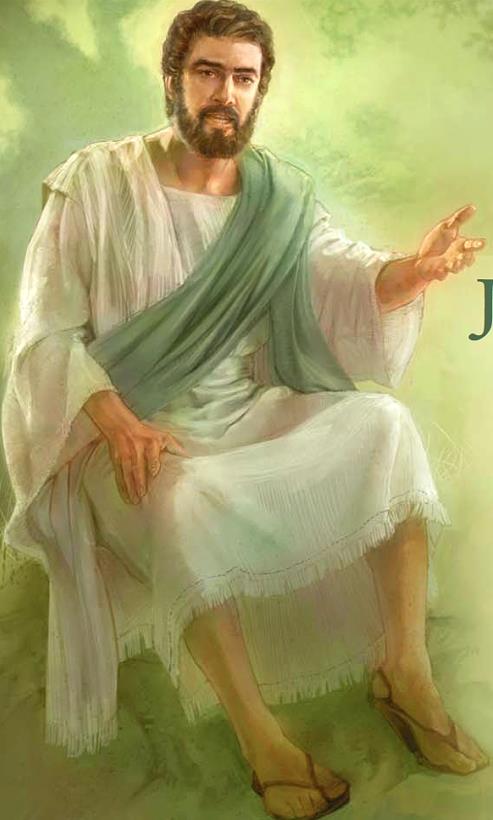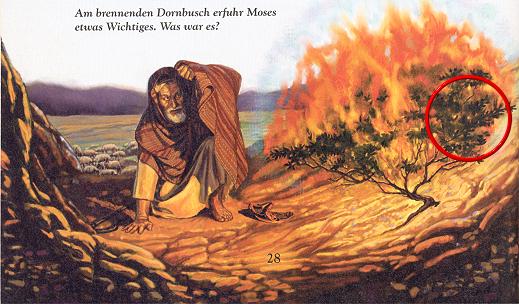Jesus Himself is the Door
by "Unknown"
Until then, the text. It is interesting that John 10 does not begin by imagining Jesus as the good shepherd, but as the door! Why? He spoke to the so-called under Shepherds. In ancient Israel, Jehovah was the shepherd (Psalm 23:1; Ezekiel 34:8) and unfortunately, there were also bad under shepherds (Ezekiel 34:1-15), priests, false teachers and leaders, and Paul announced that this would also happen in the Christian assembly (Acts 20:28-31).
Jesus spoke to such shepherds, the Pharisees, and he showed that only who would rightfully go to the sheep of the Lord who uses the right door; Jesus Himself is the Door! Whoever goes to the sheep on another way – that is possible – is a thief and a robber.
We are to test; Jesus sets the standard here for His under Shepherds; do our under Shepherds come into, with and through Christ? You can say that, of course, but how can you tell? When Jesus, after slandering Peter, confirmed that Peter was an under Shepherd, he tested his qualifications. How? He asked three times: "Do you love me?" In response to Peter's answer he gave him shepherd's authority. Therefore, do our under Shepherds love the Lord Jesus the Savior? This should be recognized, heard! Or do they go with a ladder to the sheep, with a ladder called "faithful and understanding slave" or "sole blessing church" or whatever? But these are not the right doors to the sheep, there is only one, Jesus Christ! Whoever wants to go to the sheep lawfully must be let in through this door. Do our under Shepherds love Jesus? Does it urge them to speak of him? That is a yardstick! Are they driven by the Spirit of God and Jesus, the Holy Spirit?
Yes, it is easy to say, but we are to test (1 John 4:1), and we also have a standard in John 14:26; 15:26; 16:8-14, namely: he (the Holy Spirit) will speak of Jesus, glorify him. That is the measure! Do the ministers speak of Jesus, do they glorify him? Or do they speak more about Jehovah and his organization, the "slave," the governing body?
Whose spirit speaks from them? This can be tested and recognized – if one wants. Do they serve the sheep or do they command them, do they regard them as their or the slave's property? Do they shear the sheep or do they give them freedom and life (John 10:10)?
But the Lord's sheep want and should test, because, Jesus says, they know me (John 10:14). Certainly, other people, unbelievers, atheists, etc. also know Jesus – from history, from teaching, etc. But the sheep know their Lord in a special way. They know him precisely because they are his. Knowing is here an inner acceptance, an inner belonging. They follow him with freedom and joy. A robber takes the sheep only as property, he wants to exploit them; but to the true shepherd they are valuable and free for truth and love, he wants to have them in this freedom and love, precisely because he knows and loves them.
For him, knowing her means fellowship with him. Are our shepherds like this? Or are they more like the Pharisees? Is the voice of the Lord or the authority of the slave more important to them? The shepherd knows the sheep and they know him as the father knows the son and the son knows the father. He could say: "I and the Father are one!" (One, not equal!) And only he who knows him also knows the Father! Paul made it very clear that he gave everything to win Christ (Philippians 3:8).
When under Shepherds – or other Christians – come through this door that Jesus spoke of and that Jesus is, we like to listen to it. They also have no objection to their words being tested because they know which door they came through. But there are also those who prefer to talk about Jehovah and his organization because they think they are honoring God. But that is not the case (John 5:23). Rather, God is glorified when we are Jesus disciples (John 15:8) and when we abide in Him, remain voluntary, for no one holds us by force.
But Jesus gives us water of life (John 4:14); he describes the authority given to him by the Father in seven words:
Jesus is:
- the bread of life
- the light of the world
- the door
- the good shepherd
- the resurrection and the life
- the way and the truth and the life
- the true vine
Therefore let us follow his commandment of love instead of imposing on us slave rules and slave regulations. Jesus does not treat us as slaves even though he is absolutely our Lord (John 15:15).






